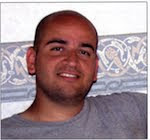Thursday, September 16, 2010
A Lesson in History: The 1960 Presidential Campaign
I recall my father sitting me down and offering this sage advice: "Son," he said, "there is no excuse for dancing like a white man."
Actually, he said no such thing. Rather, he counseled, "Son, there is no excuse for thinking like a Republican."
Okay, he never said that either, but I do recollect my father dragging me out on a bitter cold autumn night in New England fifty years ago. I was 10 going on 11, and an historic Presidential campaign was underway.
JFK was due to address an evening rally in nearby Waterbury, Connecticut. He should have arrived hours before, but no one was leaving. I was standing in the drizzling freezing cold with my father and thousands of others. People were warming their hands around improvised fires they had lit in steel trash drums.
I don't remember much about Kennedy that night, but I vividly recall that crowd. I recall my father, I recall the emotion. History was being made. Theodore White, in his book "The Making of the President," recounted that memorable night and how Kennedy was astounded by the turn-out and the enthusiasm. That reception, others have commented, animated the exhausted candidate, gave him a second wind, imbued him with the strength to squeak out a win in what was then the closest election in history.
Had my father and others voted according to reason rather than emotion, Nixon would have easily won the election. Nixon, after all, had more experience by far, having served as Vice-President under Eisenhower, a true moderate Republican who presided over a decade of unprecedented prosperity.
A continuation of the Eisenhower years under Nixon would have been the sensible choice, but many voters harbored a visceral hatred of the Republican candidate. Part of this had to do with Nixon's early rise to fame. Conservatives saw him as a principled man standing up to home-grown communism. Liberals saw him as a rat bag red-baiter out to ruin innocent people for his own personal gain.
Part of this also had to do with Nixon's unfortunate "Tricky Dicky" image, which JFK exploited to the max. (Would you buy a used car from this man?) By contrast, JFK literally invented charisma. All politicians who came after are mere pale imitations. In their first debate (see the above YouTube clip), most of those who heard the proceedings on radio thought that Nixon had won, but JFK emerged a clear winner to the TV audience.
During the campaign, JFK resorted to a scare tactic involving a fictitious "missile gap" with the Soviet Union. Nixon could not respond without disclosing classified information. There was also the complicating variable of JFK's religion, then a contentious issue. Make no mistake about it, in our Irish-Catholic household it wouldn't have mattered if Kennedy were Forrest Gump - he had the McManamy vote securely locked away.
Conversely, all hell could have frozen over before many Protestants would have voted for a Catholic. Then there was the "solid south," in those days staunchly Democrat, still irrationally nursing a grudge against the party of Lincoln.
Nixon and Kennedy entered Congress the same year, 1946. They became good friends, Kennedy a conservative Democrat, Nixon a moderate and almost liberal Republican. Both were thoughtful men, with sharp intellects. Both were keen students of history. On paper, very little separated the two. On all the intangibles - the things that reason cannot explain - it was an entirely different story.
In the final analysis, the right man won for the wrong reasons. Such is the capricious nature of democracy. Jefferson and our Founding Fathers naively assumed that a well-informed public, making reasoned choices, could be trusted with their own government. According to a recent Pew Research Poll, 34 percent of conservative Republicans think Obama is Muslim.
This time around, capricious democracy - fueled on cynically fanned emotions - is leading us to an inexorably wrong result. God help us all.
Labels:
1960 Presidential campaign,
democracy,
emotions,
JFK,
John McManamy,
Kennedy,
Nixon
Subscribe to:
Post Comments (Atom)






No comments:
Post a Comment